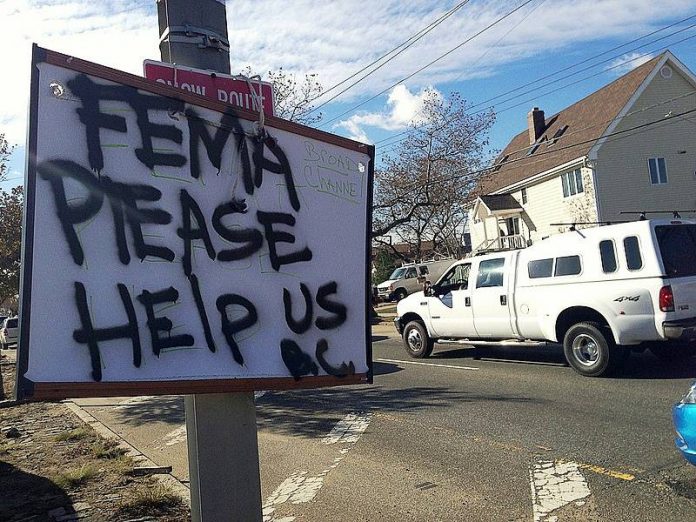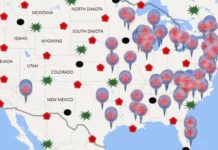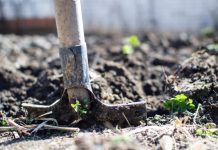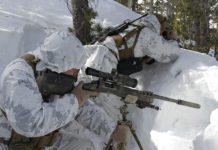The thought of getting their carefully collected supplies seized by the state and redistributed to citizens who did not bother to plan is something a lot of preppers think about. Who wants to see their family go hungry because their food has been taken away? That’s understandable.
The government agency people worry about most is FEMA.
It’s responsible for emergency relief and providing food to victims of an emergency is one of its tasks. Which makes it a strong focus of concern for everyone with stockpiled food. But what’s the reality? Is FEMA really preparing for your emergency reserves to be confiscated?
Related: What Will the Government Do When SHTF?
This might be controversial, but no, it isn’t. FEMA doesn’t even want to go door to door to confiscate preserved food so that it can be redistributed. For a start, their legal powers to do this are very questionable. Some websites say that a Kennedy-era rule, Executive Order 10998, grants FEMA the power to seize all food supplies. Good news – it doesn’t. No other EO does either. Realistically, confiscating private food supplies is the last thing that FEMA needs to be interested in. It would be extremely manpower-intensive and most possibly very risky, apart from everything else. They would have to check each house for supplies that people had not confessed to getting, and it is fair to assume that someone who had food in their basement for three months would not be too cooperative to hand it over.
So does this mean you can relax and stop worrying about FEMA coming for your food?
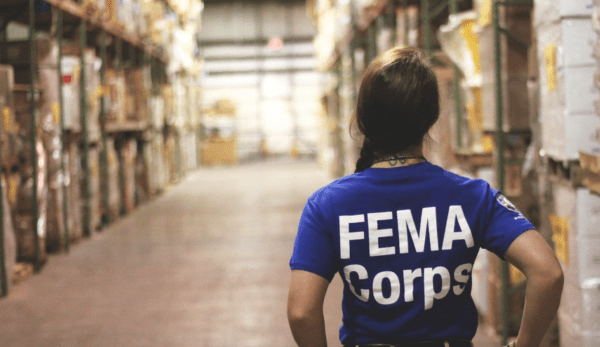

Well, not quite. Depending on what sort of disaster we’re talking about – and on where you live – it’s possible that government officials will try to confiscate private supplies(see what you can do to avoid that)
The immediate response of FEMA to a crisis is to bring in food supplies from its own inventories. If that’s not enough, even if more than one or two states were affected by the tragedy, it probably wouldn’t be, they would turn to massive food processors. It is fast and simple to hand a canned goods factory a requisition order and guarantee later payment. If that weren’t enough, their next ports of call would be wholesalers, factories and grain silos. What FEMA is searching for is bulk food. It’s easier to bring, and when they come to take it, nobody can shoot at them. Plus, there’s a lot of bulk food available for requisition in most of the USA.
But what if it doesn’t exist? Of course, a storm or even a major earthquake will not disrupt bulk supplies in a vast area, however a nuclear attack will. Near transport hubs, food processing plants, distribution centers and animal feedlots tend to be located, and those are primary targets for enemy nukes. There are going to be a lot of food supplies going up in flames.
Of course, not everyone can, but destroying transport hubs often ensures that what remains would be difficult to carry. Huge parts of the nation are going to be cut off from the supplies that exist anywhere that has no food production industry. And that’s when FEMA, or more possibly, local authorities, will begin to think about confiscating private stocks of food.
Related: 16 Items FEMA Tells You to Stockpile and Why
They won’t get to that right away, of course.
Wholesalers and supermarkets will still exist, and they can take care of them as soon as they can. Also, small grocery stores are going to be searched out, and they would be confiscated if they have a storage room that hasn’t been robbed yet. However, how much will they get? Nowhere near enough. If there was some notice of the crisis, panic-buying would have cleared most food shelves. Expect supermarkets to be completely empty anyway. Looters are going to take away a lot of what’s left. Realistically, for a week at most, what’s left in the supermarkets will feed people. If transportation is not up and running from the main food stores by then (and it won’t be after a nuclear attack), that’s when anyone could come looking for private supplies. But who’s at risk the most?
The biggest risk is if you have neighbors who know that you’re a prepper.
If they are hungry, and they know you have provisions, they will inform every passing government official that they know where a load of food is stashed, whether it’s a FEMA team or a local policeman. Most likely, you’ll get a knock on the door a few minutes later, and someone will tell you it’s time to “support the less fortunate” by turning on most of your food. The more it is possible to do to keep your plans quiet, the better.
On a larger scale, there is little or no chance of anyone attempting to confiscate your supplies if you live in a region with a large food processing market, and this is not damaged in an attack. If, however, there is a possible goal near this industry, such as an airport, major highway intersection or port, then it is possible that the food stocks there will either be destroyed or rendered unavailable. There will be a major food shortage if it happens, and a confiscation program is very likely.
Related: Hoard These Supplies for SHTF
The risk of confiscation also depends on what farms are producing in your field. This would be a high value advantage for FEMA if they have just brought in a big crop of wheat or corn and they would possibly not be interested in your supplies. A different tale could be other forms of farming. Livestock isn’t a perfect food source for emergencies. It’s labor-intensive to turn it into meat, and FEMA will fail to do it, so they are far more likely to suggest confiscation. In fruit-growing zones, the same goes. Fruit is not a perfect source of food and it does not last for long either. For their long life and nutrition, stockpiled emergency rations are explicitly selected, so they would look much more appealing to FEMA or local authorities.
In short: if you live in any state with a coastline you’re at higher risk of the government trying to redistribute your supplies.
You are also at greater risk if there is a major city within 50 miles of you. Cities need a lot of food, particularly if food processors and warehouses around it have been destroyed.
The Midwestern states that produce a lot of wheat and corn are the states with the lowest chance of confiscation. There will be plenty of food available for sequestration and distribution by FEMA. Even if it’s not the harvest season, the silos, warehouses and processing plants will store thousands of tons.
Related: Cheap Survival Gear YOU Need
In rural areas of Iowa, Illinois, the safest places to be if you want to be safe from confiscation. Nebraska, Indiana, Ohio or Minnesota. That’s where the majority of the easily distributed food is, so FEMA would have no shortage of supplies to distribute. They won’t be interested in your supplies if they can get their hands on loads of food in a facility built for fast loading onto trucks.
However, even if you’re not in one of the areas of greater danger, the safest thing you can do is not advertise that you have a surplus of food. FEMA may not be involved, but they’ll be your neighbors. You are prepared to protect your stocks, so why don’t you want to draw attention? There’s no guarantee you’ll be able to stop them if anyone wants to steal your food, so keep your plans as discrete as you can. The government can’t even take away something it doesn’t know about.



